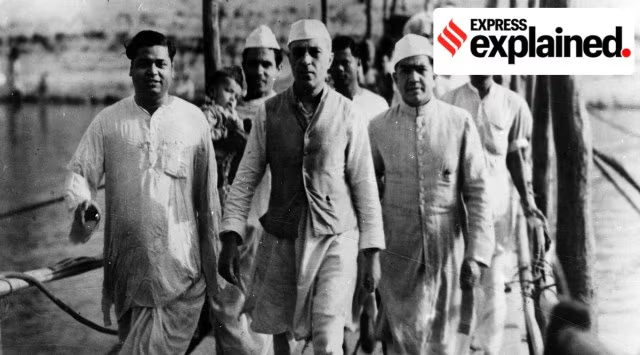Dive into Narinderpal Singh's exceptional Punjabi novels depicting Sikh history. Discover his acclaimed works like 'Baa mulahaza hoshiar' and more!
BHUPINDER SINGH, LIEUTENANTGENERAL MAHARAJA SIR (1891-1931), Knight Grand Commander of the Order of the Star of India, Knight Grand Commander of the Order of the Indian Empire, Knight of the Order of the British Empire, ruler of the Sikh state of Patiala, was one of the most colourful and influential Indian princes of the interwar years. Tall, robust, dashingly handsome, he was to the British the personification of the Punjabi martial races, a veritable "flower of Oriental aristocracy." In his own eyes, and in the eyes of many of his coreligionists, he was the temporal leader of Sikhism.
Discover the legacy of Sirdar Kapur Singh, a master of Sikh theology, philosophy & literature, whose influence shaped modern Sikh political thought.
Explore the legacy of Partap Singh Kairon, Punjab's influential chief minister, champion of progress, and advocate for independence and reform.
Explore Navtej Singh's poignant short stories and essays, full of poetic touches and realism, recognized by the Punjab government with the Shiromani Patrakar Award.
BRAHMO SAMAJ. The expression "Brahmo Samaj" (correct transcription, "Brahma Samaja") literally stands for a society of the worshippers of Brahman, the Supreme Reality, according to Hindu philosophy. It is the name of the Theistic Church founded by Raja Rammohun Roy (1772-1833), in Calcutta on 20 August 1828. The history of the movement leading to the foundation of this "house of worship" is intimately bound up with that of the individual career of Rammohun Roy.
Explore the doctrine of karma in Hinduism, Sikhism, and Buddhism, a law of cause and effect linked to rebirth. Discover how liberation from karma is achieved.
Discover the pivotal role of the Punjab Boundary Commission in 1947's partition, shaping modern India and Pakistan under the guidance of Lord Mountbatten.
Dive into Indian cultures with Piara Singh's works. Discover Indian art, poets, and religions through his engaging and informative writings.
Chitrakar, Ishwar Singh (1912 -1968), a noted painter and poet in Punjabi, was born in 1912 and died in 1968. His pen name, Chitrakar, indicates his penchant for painting and painting to him was as dear a medium of creativity as poetry was. Literary movements of his time did not fascinate him. He was lonely and forsaken but true to his innermost spirit of freedom and love. He is the author of two collections of essays entitled Kalam di Awaz (The Voice of the Pen) and Gal Bat (Conversation).




